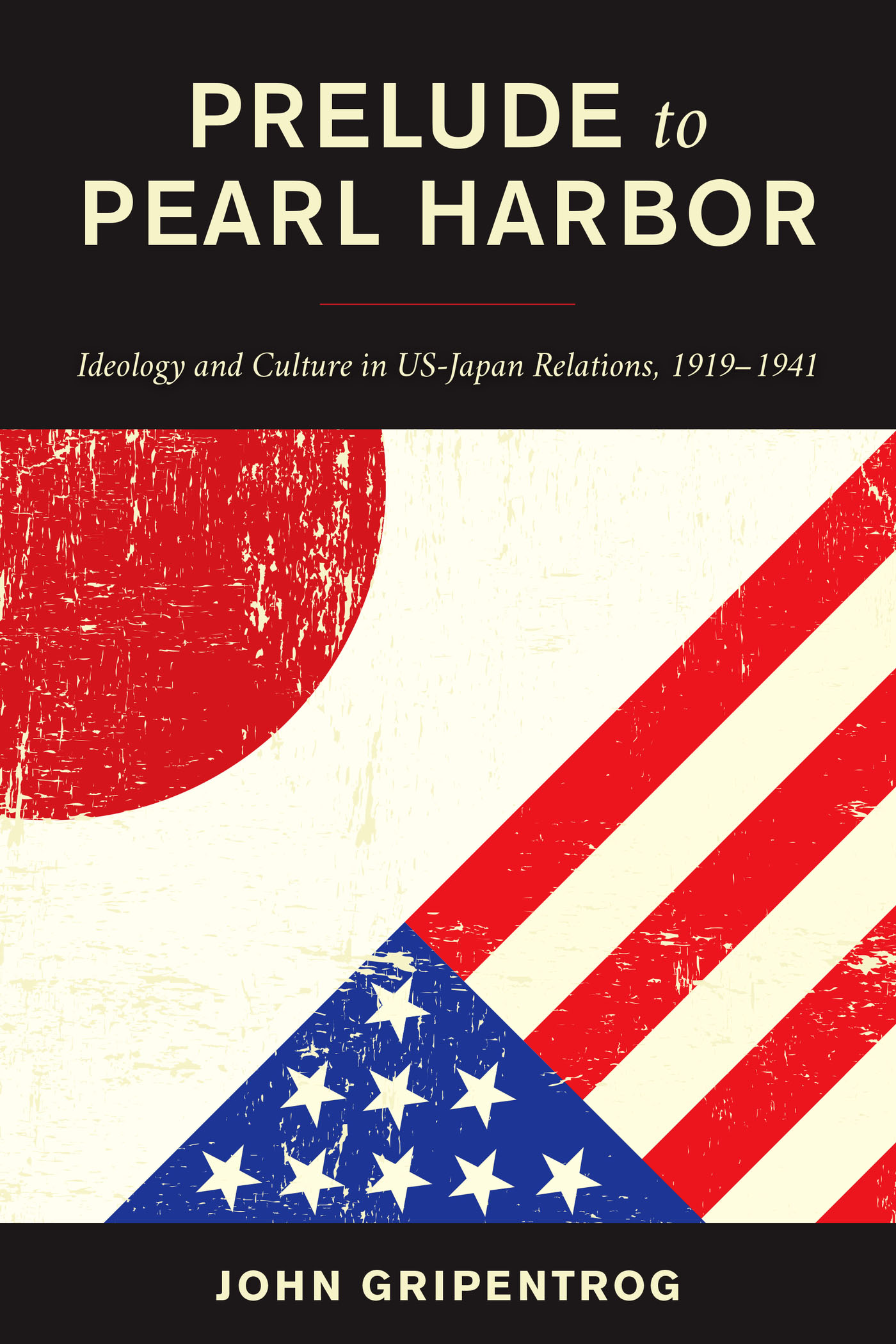Prelude to Pearl Harbor
Ideology and Culture in US-Japan
Relations, 19191941
John Gripentrog
ROWMAN & LITTLEFIELD
Lanham Boulder New York London
Published by Rowman & Littlefield
An imprint of The Rowman & Littlefield Publishing Group, Inc.
4501 Forbes Boulevard, Suite 200, Lanham, Maryland 20706
www.rowman.com
6 Tinworth Street, London SE11 5AL, United Kingdom
Copyright 2021 by The Rowman & Littlefield Publishing Group, Inc.
All rights reserved. No part of this book may be reproduced in any form or by any electronic or mechanical means, including information storage and retrieval systems, without written permission from the publisher, except by a reviewer who may quote passages in a review.
British Library Cataloguing in Publication Information Available
Library of Congress Cataloging-in-Publication Data
Names: Gripentrog, John, 1961 author.
Title: Prelude to Pearl Harbor : ideology and culture in US-Japan relations, 19191941 / John Gripentrog.
Other titles: Ideology and culture in US-Japan relations, 19191941
Description: Lanham : Rowman & Littlefield, [2021] | Includes bibliographical references and index.
Identifiers: LCCN 2020052299 (print) | LCCN 2020052300 (ebook) | ISBN 9781538149430 (cloth) | ISBN 9781538149447 (epub)
Subjects: LCSH: United StatesForeign relationsJapan. | JapanForeign relationsUnited States. | United StatesForeign relations20th century. | JapanForeign relations19121945. | Internationalism. | RegionalismEast AsiaHistory20th century. | World War, 19391945Causes.
Classification: LCC E183.8.J3 G75 2021 (print) | LCC E183.8.J3 (ebook) | DDC 327.7305209/04dc23
LC record available at https://lccn.loc.gov/2020052299
LC ebook record available at https://lccn.loc.gov/2020052300
 TM The paper used in this publication meets the minimum requirements of American National Standard for Information Sciences Permanence of Paper for Printed Library Materials, ANSI/NISO Z39.48-1992.
TM The paper used in this publication meets the minimum requirements of American National Standard for Information Sciences Permanence of Paper for Printed Library Materials, ANSI/NISO Z39.48-1992.
For A.E.Y.G.
I many times thought Peace had come
When Peace was far away....
How many the fictitious Shores
Before the Harbor be
Emily Dickinson, Poems
Acknowledgments
In many ways the genesis of this bookand its many debtstraces back to my travels throughout China in 1986 and more than two years of residence in Japan. The friendships and formative experiences there spurred a lifetime of interest in the history and culture of East Asia. I am especially grateful to Haruno Tokitaro for his generosity and careand uncommon introduction to Japan. I am also thankful to the history faculty at Cal State Los Angeles for encouraging me to pursue a Ph.D., and a return to my undergraduate alma mater, the University of WisconsinMadison.
At UW-Madison I had the fortune of learning from and working with superb faculty in a variety of specialized fields. This study profited, in particular, from the continued scholarly support and feedback of John M. Cooper Jr. and Louise Young. Johns timely and careful readings of my manuscript chapters provided rare insights that invariably steered me in more fruitful directions. Louises inspiration and guidance, during graduate school and many years since, leaves an indelible mark. I could not have asked for more supportive bookends in researching and writing a manuscript on US-Japan relations in the 1930s than eminent historians of early twentieth-century United States and interwar Japan, respectively. I am also grateful to Jim Lenburg and the anonymous peer reviewers for their constructive edits and suggestions. The manuscript has been greatly improved as a result of their efforts.
For the yearlong sabbatical that granted me the requisite time to complete this project, I extend deep bows of gratitude to Mars Hill University and the Appalachian College Association. The Faculty Enrichment and Renewal Committee at MHU also provided key travel funding. I am similarly grateful to Wendy Mullis at UNC-Asheville for providing me with a study room in the womblike quietude of the library basement. Of course, the writing of this book would have been impossible without the expert assistance of numerous librarians and archivists. I am particularly indebted to the archivists at the Franklin D. Roosevelt Presidential Library; the National Archives and Records Administration in College Park, Maryland; Kurita Junko at the Japan Foundation in Tokyo; and Sarah Patton at the Hoover Institution Library and Archives. Special acknowledgment is extended to Bev Robertsons superb staff at the Mars Hill University Library, especially Rachel Mitchell and Linda Ray, for their efficient handling of many interlibrary loan requests. At Rowman & Littlefield, I wish to thank Senior Executive Editor Susan McEachern and Assistant Editor Katelyn Turner for their enthusiastic support and guidance.
Also helping this book come to fruition were a host of colleagues and friends, including Jorje Chica, Cletus Hasslinger, and Patrick Michelson, who lent a critical eye to earlier drafts. The diligent work of student research assistants in the history program at Mars Hill UniversityRoman Blevins, Ben Phillips, Jacob Ashley, and Daniel Nelsonwas indispensable. This project also benefited from the excellent research assistance of Fukamatsu Ryota as well as from Naito Yuka and Ruiz Asri. Stephen Gripentrog helped greatly with images, and Peggy Fender and Kristie Hollifield offered critical administrative assistance. Moral support and collegiality, meanwhile, came regularly from colleagues at MHU, especially Lucia Carter, Karen Paar, Matthew Baldwin, Hal McDonald, Brett Johnson, Jennifer Brown, Dan Koster, Marc Mullinax, David Gilbert, Jonathan McCoy, Felice Lopez-Bell, Craig Goforth, Joanna and Jason Pierce, Phyllis Smith, Kathy Newfont, Kathy Meacham, and George Peery. Many other colleagues and friends across historical disciplines offered helpful advice and encouragement along the way, including Edward Frantz, Chris Wells, Alexander Shashko, Anthony Gaughan, Greg Bond, Will Barnett, Tom McGrath, and the late Rob Neufeld.
Above and beyond the mechanics of scholarship, I extend deep gratitude to a core group of longtime friends who have enriched my life and sustained me in the course of completing this manuscript: David Brittain, Jeffrey Schmidt, Todd and Jan Graveline, Markus Giolas and Tammi Franke, Steven Ihrke, Ted Houston, Richard Brittain, and the late Jon Krill.
Finally, I owe a tremendous debt to my familyto my late mother and father, who granted me the freedom to roam early on in life; to seven supportive siblings; and inimitable in-laws. Special acknowledgment goes to Ann Bernier for her critical analytical support in diverse matters. Most of all, I want to thank my wife, Alison, whose unswerving encouragement was both humbling and inspiring.
Parts of a couple chapters of this book are drawn from previously published articles in Diplomatic History and the Pacific Historical Review. I would like to thank the editors for allowing me to reprint.
Notes on Usage
Japanese names appear in customary style, with family name preceding given name. Exceptions are made for sources published in English in which author names are given according to Western usage. Macrons are used to identify long vowels. Romanization of Chinese names and places goes by the modern pinyin system, but first mention often includes, in parentheses, transliterations based on the outdated WadeGiles system. Examples: Beijing (Peking); Nanjing (Nanking). Rare exceptions include names and places that remain historically relevant by the older systems, such as Chiang Kai-shek (Jiang Jieshi), the Kuomintang (Guomindang), and Manchukuo (Manzhouguo).
Next page
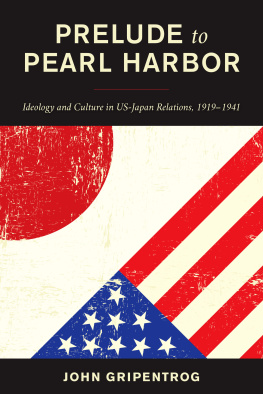
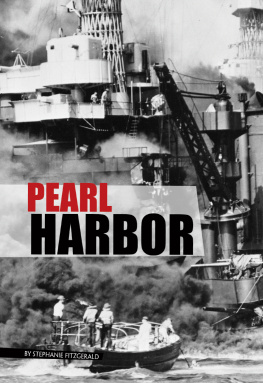
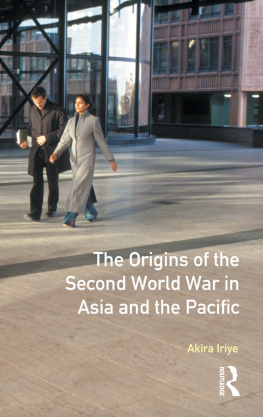

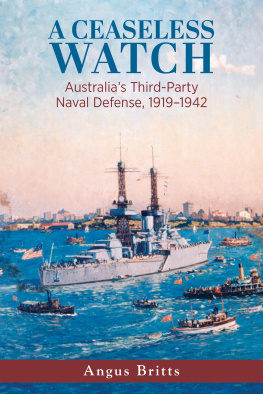
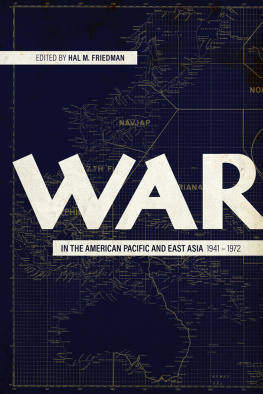
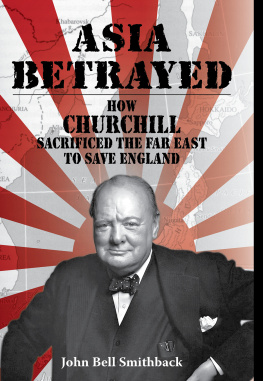
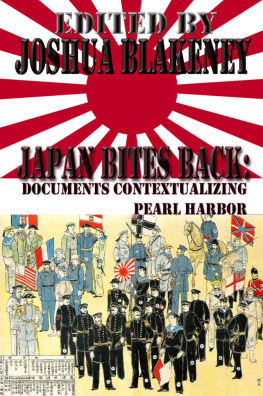

 TM The paper used in this publication meets the minimum requirements of American National Standard for Information Sciences Permanence of Paper for Printed Library Materials, ANSI/NISO Z39.48-1992.
TM The paper used in this publication meets the minimum requirements of American National Standard for Information Sciences Permanence of Paper for Printed Library Materials, ANSI/NISO Z39.48-1992.